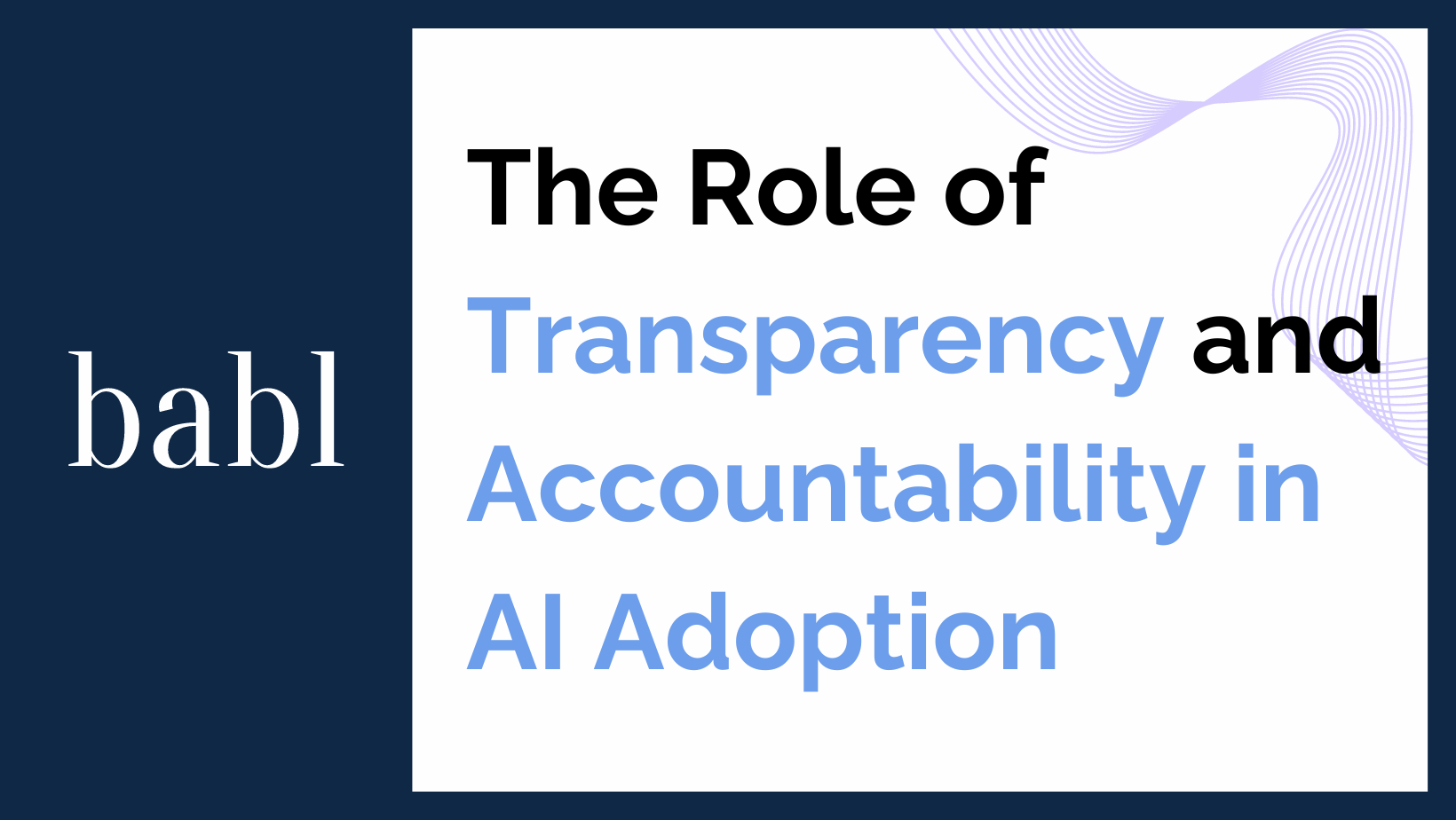In the rapidly evolving landscape of artificial intelligence (AI), transparency and accountability have become the foundation of public trust. As AI systems shape decisions in healthcare, finance, and beyond, organizations must ensure that these technologies are built and deployed responsibly. Clear communication and ethical oversight are essential for earning confidence from consumers, employees, and regulators alike.
Why Transparency and Accountability Matter
Transparency means explaining how AI systems work—how they use data, make decisions, and manage bias. Accountability ensures that people and organizations remain responsible for those outcomes. Together, they make AI systems understandable and trustworthy. A recent PwC survey, there is a significant gap between the trust levels reported by business executives and those felt by consumers. While 90% of executives believed they were successfully building trust, only 30% of consumers felt the same. This discrepancy underscores the critical role of transparency and accountability in bridging the trust gap and highlights the need for businesses to improve their communication strategies regarding AI governance.
The Importance of Transparency in AI
Transparency is foundational for ethical AI deployment. It involves several key elements:
- Explainability: Stakeholders need to understand how AI systems make decisions. This includes clarity on the algorithms used, the data inputs, and the logic behind the outputs. For instance, if an AI system is used in hiring, it should be able to explain why certain candidates were selected or rejected.
- Data Disclosure: Businesses must disclose what data is being collected, how it is being used, and who has access to it. This is particularly important in building consumer trust, as concerns about data privacy and misuse are prevalent.
- Algorithmic Transparency: Organizations should provide information about the algorithms’ training processes, including how they are tested for biases and inaccuracies. This helps stakeholders understand the measures taken to ensure fairness and accuracy in AI systems.
- Communication: Open and continuous dialogue with stakeholders about AI’s role, capabilities, and limitations is crucial. This includes updating users and the public about changes in AI systems, such as updates to data policies or algorithmic adjustments.
Accountability in AI: Ensuring Responsibility and Ethics
While transparency helps demystify AI systems, accountability ensures that there are consequences for AI’s impacts on individuals and society. This can be achieved through several mechanisms:
- Regulatory Compliance: Adhering to existing laws and regulations, such as GDPR for data protection or the EU AI Act, is a fundamental aspect of accountability. These regulations often require companies to demonstrate that they have taken steps to prevent harm and discrimination.
- Internal Governance: Establishing clear roles and responsibilities within an organization for AI oversight is critical. This includes setting up dedicated ethics committees, AI audit teams, and compliance officers tasked with ensuring that AI systems operate within ethical and legal boundaries.
- Audit Trails: Maintaining detailed records of AI systems’ decision-making processes and the data they use can help trace back the causes of any issues that arise, facilitating accountability and corrective actions.
- Stakeholder Engagement: Involving various stakeholders, including employees, customers, and external experts, in the development and oversight of AI systems can enhance accountability. This inclusive approach ensures that diverse perspectives are considered, and potential issues are addressed proactively.
Best Practices for Building AI Transparency and Accountability
- Adopt Ethical AI Guidelines: Develop and implement comprehensive ethical guidelines that outline the principles governing the use of AI within the organization. This should include commitments to fairness, transparency, and accountability.
- Regular Audits and Assessments: Conduct regular audits of AI systems to assess their compliance with ethical guidelines and regulatory standards. This can help identify and mitigate risks associated with bias, discrimination, or other ethical concerns.
- Invest in Explainable AI: Prioritize the development of AI systems that are explainable. Explainable AI not only helps in understanding and trusting AI decisions but also in diagnosing and fixing issues when they arise.
- Transparency Reports: Publish transparency reports that detail the AI systems in use, their purposes, the data they use, and the safeguards in place to protect users’ interests. These reports can be a valuable tool for communicating with stakeholders and demonstrating a commitment to ethical AI practices.
- Education and Training: Educate employees and stakeholders about the ethical use of AI and the importance of transparency and accountability. Training programs can equip staff with the knowledge and skills needed to implement and uphold these principles effectively.
The Consequences of Failing to Uphold AI Transparency and Accountability
Failing to prioritize transparency and accountability can lead to significant risks.
-
Erosion of Trust: People may reject opaque AI systems, reducing adoption in high-stakes areas like healthcare or banking.
- Legal Risks: Violating AI or privacy laws can lead to fines and sanctions. Additionally, regulatory scrutiny can increase, leading to more stringent oversight and potential operational disruptions.
-
Reputational Damage: Perceptions of bias or secrecy can undermine credibility with customers and investors.
Conclusion
Transparency and accountability are more than ideals—they are strategic advantages. Companies that explain their AI systems and take responsibility for outcomes earn lasting trust. By embedding openness, ethics, and governance into every stage of AI adoption, organizations can innovate confidently while protecting their reputation and stakeholders.
Need Help?
If you want to gain a competitive edge in understanding and applying AI regulations, contact BABL AI. Their Audit Experts can help you implement responsible AI systems and stay ahead of emerging compliance standards.





